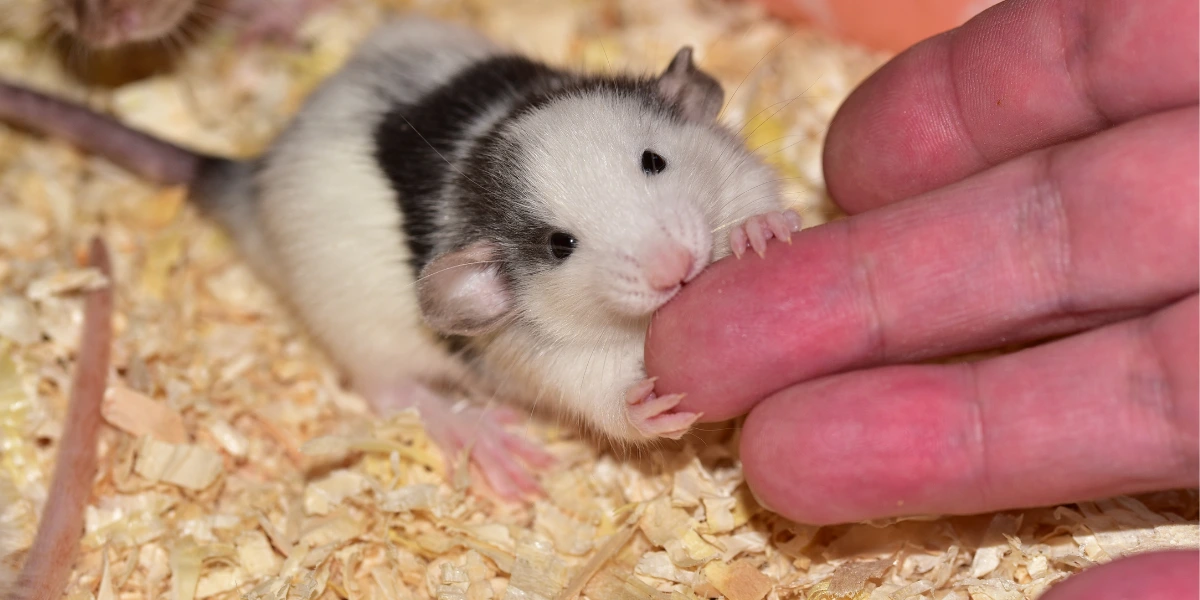If you’ve ever seen a rat scurry across an alley or basement floor, you’ve probably wondered: Do rats attack humans? Although rats can bite and defend themselves, they are not likely to attack individuals. The majority of rats would just prefer to run rather than fight. Nevertheless, it is possible to understand when and how these rodents may be aggressive, which could help you prevent putting your health and home in danger.
Why Rats Usually Avoid Humans
Rats are naturally cautious. They are not predators; they are prey, and they have to live with their speed and unexpectedness. They survive on garbage and crumbs, and discarded food in the urban setting. Humans aren’t on their menu. It is due to this that the majority of the rats avoid being close to people and only become active during the night when we are asleep.
Nevertheless, rats would protect themselves in case they feel trapped or threatened. A fearful rat might strike out with its teeth to get out. It is more of fear than aggression. A healthy rat will hardly ever come up to a person, but they might bite you when you attempt to handle the rat or even startle it. If you notice frequent rat activity in your area, contacting a rodent control Vancouver specialist can help identify entry points and prevent future infestations.
When Do Rats Become Aggressive?
In some cases, rats might get violent. One major trigger is fear. When a rat feels that there is no escape, then it might attack in self-protection. Competition over food is another reason. Rats may also be more territorial in places with a scarce resource supply, resulting in fights with one another and infrequent instances of defensive behavior towards humans.
The third cause is illness or ill health. Rats that are sick or injured also exhibit unpredictable behavior. It is more likely to encounter in very unsanitary conditions in which people and rats are forced into close contact, such as overcrowded buildings or abandoned properties.
Can Rats Bite You While You Sleep?
Rats are nocturnal, which means they like to explore houses when there is darkness and silence. Food scraps or crumbs can be left out, and this may result in crawling through the kitchen counters, pantry, or even bedding. Despite the terrifying sound of the concept, rats hardly bite sleeping people. The majority of the reported cases include young children, the elderly, or individuals who reside in extreme cases of infestation where rats have become excessively daring.
One must never underestimate a bite from a rat. Rats can infect people with salmonella, rat-bite fever, and leptospirosis, even though the wound may seem to be small. Any bitten person should wash the cut and go to the doctor.
Are Certain Rat Species More Likely to Attack?
All rats share similar instincts, but their behavior can vary by species. The Norway rat (or brown rat) is larger and more likely to defend itself if cornered. The roof rat (or black rat) is smaller and more agile, preferring to flee rather than fight. Neither species hunts humans or pets, but both can bite if handled or provoked.
What to Do If You Encounter a Rat
If you come across a rat, stay calm. Avoid sudden movements that might make it feel cornered. Leave the area and give it a clear escape route. Don’t try to catch it yourself rats can move fast and may bite if frightened. Instead, contact a professional pest control service that can identify entry points, set traps, and remove the rodents safely.
Professional removal is especially important if you notice frequent droppings, gnaw marks, or scratching sounds behind walls. These are signs of a growing population that could quickly become a larger issue.
Preventing Future Infestations
Prevention is always better than dealing with an active infestation. Regular cleaning, garbage management, and sealing cracks around your home can make a big difference. Keep outdoor areas tidy, trim vegetation close to walls, and avoid leaving pet food out overnight.
In commercial properties or apartment buildings, communal waste areas should be cleaned regularly, and maintenance staff should check for nesting signs in hidden spaces. The cleaner and less accessible your property is, the less likely rats are to settle there.
Final Thoughts
So, do rats attack humans? In short, only under very specific circumstances. Rats are more afraid of us than we are of them. Most bites occur from accidental contact or when a frightened rat has no escape route. While attacks are rare, infestations are not, and the health and property risks they pose are real. By keeping living spaces clean and getting help from ASM Pest Control, you can prevent encounters altogether.






